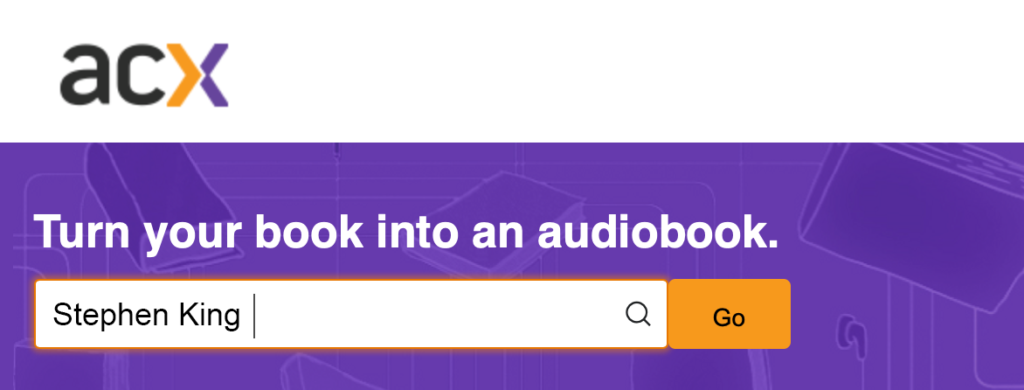What exactly is a fraudulent or “scam” listing? Why would someone post one?
First it’s important to understand that anyone can claim audio right for any book on Amazon. Anyone can go to the ACX home page, type in “Stephen King.” Thus, a scam is born:

And click the button that says “This is my book”

ACX does not confirm the audio rights for any book!
How the Scam Works
Scammers will hop on ACX and claim popular books as their own. They list them as Royalty Share (which costs them nothing), and hope that an unwitting producer will jump at a potentially juicy RS deal.
After production, when the book is in QC review, it might get removed, or even later after it’s available for sale it could be taken down (and usually is at some point). But at that point, the audio producer (you) are out of luck for the time you’ve put in. It sucks! Even wasting time on an audition sucks when it’s all a scam to begin with.
How to Avoid Getting Scammed
For any suspicious/too-good-to-be-true listing, you should confirm the Rights Holder actually has the rights to make an audiobook. ACX listings are really just random job listings from random people. Suspicious or not, you should do your due diligence on who you’re going into business with.
Check out our video on Facebook which explains a bit more about how to investigate Rights Holders and spot scam listings (e.g., check the audition sample. Contact the Rights Holder outside of ACX). It also covers the use of Author Snoop.
98-99% of the listings on ACX are not scams, so don’t get too caught up in avoiding them, especially if you’re just at the audition stage. Just be aware of red flags in general. Avoid low quality books, and Royalty Share deals that are too good to be true.
Watch Out for These Red Flags
One or two of these isn’t a huge deal, but when you have several of these criteria in one listing, it’s not looking good:
- Royalty Share – scammers rarely risk paying. Not all royalty share is a scam, but most scams are royalty share.
- Non-fiction – Not all non-fiction books are scams, but most scam titles are non-fiction.
- Many reviews – The book has 90+ reviews, so it is/was popular. (Note this is not a red flag by itself– only in combination with some of these other factors.)
- Traditional publisher – the print/ebook editions are put out by a traditional publisher. Huge red flag.
- Popular author/brand – e.g., Dave Ramsey, Chrissy Teigen, “for Dummies,” “America’s Test Kitchen,” et al. Huge red flag.
- Already has an audiobook – Check on Amazon for this. Huge red flag.
- Audition script (or comments) are exactly the same as the sales blurb.
- RH has poor English skills, or shares a simple comment like “Give it your best shot!”
When in doubt, message the Rights Holder and get some kind of off-ACX confirmation from them (e.g., email from the author’s website) that they do have the rights to the audiobook. Or vice versa: go to the author’s website and reach out to them to confirm they’ve (or the publisher) has listed it on ACX.